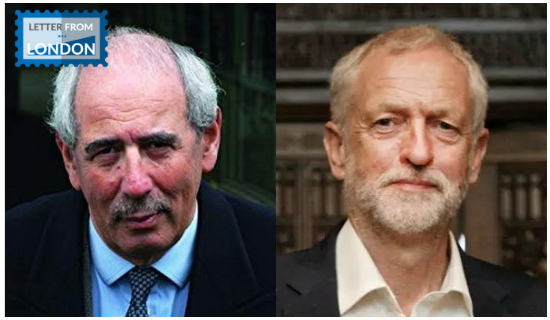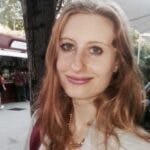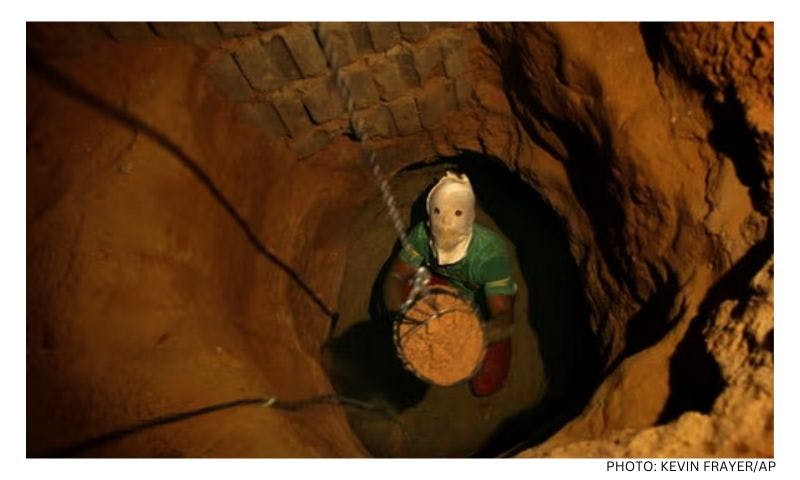Published: 24 March 2019
Last updated: 4 March 2024
Unsurprisingly, Labour Party leader Jeremy Corbyn was the bête noire of the festival, his name triggering equal amounts of groans and titters alike. Corbyn’s “I’m using English irony” line – when he said some British Zionists did not understand this peculiarly English strain of sarcasm – was pulled out more than once, as was the urban legend about him having never read a book (“Corbyn … doesn’t read, so he’s not going to sue”, jested writer Tom Bower).
Bower’s recent book, Dangerous Hero: Corbyn’s Ruthless Plot for Power, presents a damning picture of the man who could be Britain’s next prime minister. The veteran journalist, the child of Jewish refugees from occupied Europe, is a prolific author whose books include unauthorised biographies of former British prime ministers David Cameron and Tony Blair, Prince Charles, Richard Branson and the late media mogul Robert Maxwell.
His new book includes a number of chilling anecdotes. For example, Corbyn always refused to meet the Jewish colleague of his first wife, a Labour councillor for North London, or any of her Orthodox Jewish constituents, for fear of offending Palestinians. “Jeremy,” his ex-wife told Bower, “was conflicted because he supported Palestine and the abolition of Israel so that Palestinians could recover their homes.”
Throughout the week, speakers lamented the mess Britain finds itself in over Brexit. Nick Cohen, columnist for the left-wing Observer newspaper, warned the country “is underestimating the chances of a breakdown”, and joked that stocking up on supermarket staples might “not wholly be a terrible idea”.
Prominent Times columnist Melanie Phillips denounced each side of politics as “more incompetent than the other”. Phillips, who is a big proponent of Brexit, warned of “complete collapse in the efficacy of the government system” in the event of a second referendum voting to remain in the EU.
“Britain does not do extremes”, she underlined, and people might not take to the streets like the French, but there would be “serious disquiet” nonetheless.
[gallery columns="2" size="medium" ids="27081,27082"]
From the woes of 2019 to those of 1919, Volker Weiderman, the cultural editor of German weekly news magazine Der Spiegel, discussed his new book Dreamers, about the short-lived communist takeover of Bavaria one hundred years ago.
This was a revolution quite literally dreamed up by writers and madmen: the Jewish playwright Ernst Toller, aged just 22, who the Western Front transformed into a pacifist, romanticising over a “Bavarian Revolution of Love”; a finance minister who wanted the value of money to expire each week; a regular psychiatric patient, Dr Franz Lipp, who once telegraphed Lenin asking whether Russia’s leader could help locate the stolen key to the Foreign Ministry bathroom – a minister who, as the event’s chair, writer Rebecca Abrams, quipped, “puts Boris Johnson [the former British foreign secretary known for his propensity for gaffes] into the shade”.
After the horrors of the trenches, “there was a readiness for something new”, explained Weidermann, who also penned the excellent novella Summer Before the Dark, a snapshot of pre-war Europe as seen through the eyes of Jewish writers Joseph Roth and Stefan Zweig. It was a short-lived experiment to be sure - the Germany army and paramilitary Freikorps units were to enter Munich a few weeks later, and an estimated 6,000-7,000 suspected Communists were shot.
But it was a project that for one moment in German history sought to realise literature through politics. Thomas Mann, at the time Germany’s most famous writer and a Munich resident himself, feared the revolution could mean an end to freedom of thought.
Elsewhere, Stanford University historian Steven Zipperstein read from Chaim Bialik’s famous poem, In the City of Killing, written in the aftermath of the Kishinev pogrom, when 49 Jews were murdered and hundreds of women raped, over the course of three days in April 1903.
[gallery columns="2" size="medium" ids="27084,27083"]
Bialik, later Israel’s national poet, spent five weeks in the Bessarabian town, then part of the Russian empire and today the capital of Moldova, interviewing survivors of the atrocity. He went on to write “the best Jewish poem since the Middle Ages”, according to Zipperstein, whose work Pogrom: Kishinev and The Tilt of History examines pre-Revolution Jewish history through the microcosm of this tragedy.
Before the Holocaust, it was the events at Kishinev that people identified with anti-Semitism, not because it was the worst atrocity of its kind (a pogrom in Odessa two years later led to over two thousand dead) but in part because it was the first time such a scene had been documented visually.
Serialised reports from Irish journalist Michael Davitt, commissioned by the Hearst newspaper organisation, made headlines for weeks, and triggered an outpouring of aid, much of it from the US and Western Europe. Kishinev holds the dubious honour of making the word “pogrom” a household name.
A sprig of optimism appeared in the program in the form of American journalist Barry Cohen, who introduced his book Opening the Drawer, a profile of Polish Jewry today. Cohen had imagined Jewish life in Poland to be extinct, but a trip to his mother’s homeland told a different story.
True, Cohen interviewed Holocaust survivors who concealed their Jewish identity after the war, and Poles raised as Catholics who only learnt they were Jewish well into adulthood; one subject, the author said, compared the experience of discovering he was Jewish to finding out he’d been adopted.
However, the rise of the Solidarity movement in the 1980s brought with it an emergence of organised Jewish consciousness. During a week of political doom and gloom, Cohen’s talk about a young Polish generation eager to rediscover Judaism might have left its British audience with a somewhat lighter spring in its step.
Main image: Journalist Tom Bower (left) and Jeremy Corbyn




